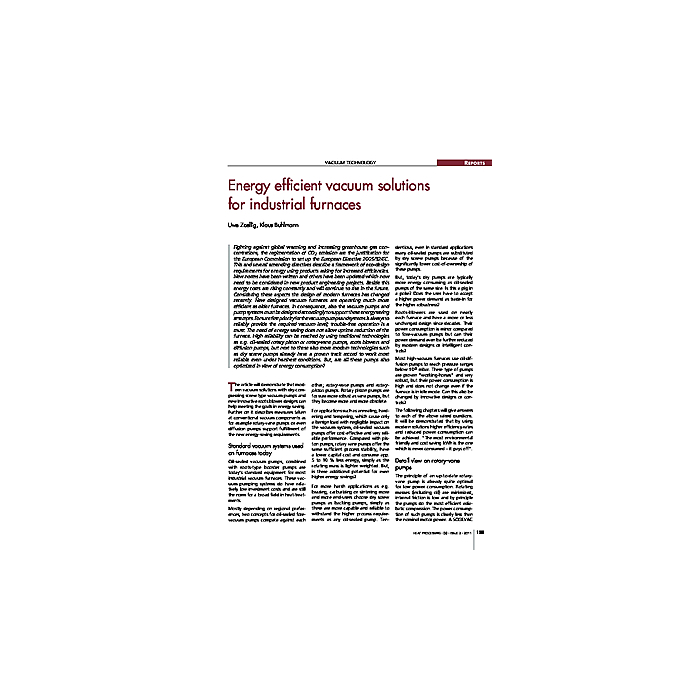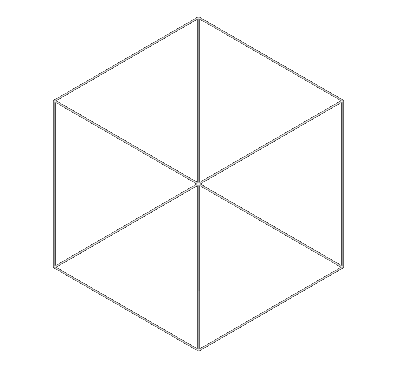Energy efficient vacuum solutions for industrial furnaces
4,90 €
Auf Lager
Artikelnummer
00541_2011_02_10
Fighting against global warming and increasing greenhouse gas concentrations, the regimentation of CO2 emission are the justification for the European Commission to set up the European Directive 2005/32/EC. This and several amending directives describe a framework of eco-design requirements for energy using products asking for increased efficiencies. New norms have been written and others have been updated which now need to be considered in new product engineering projects. Beside this energy costs are rising constantly and will continue to rise in the future. Considering these aspects the design of modern furnaces has changed recently. New designed vacuum furnaces are operating much more efficient as older furnaces. In consequence, also the vacuum pumps and pump systems must be designed accordingly to support these energy saving attempts. For sure first priority for the vacuum pumps and systems is always to reliably provide the required vacuum level; trouble-free operation is a must. The need of energy saving does not allow uptime reduction of the furnace. High reliability can be reached by using traditional technologies as e.g. oil-sealed rotary piston or rotary-vane pumps, roots blowers and diffusion pumps, but next to these also more modern technologies such as dry screw pumps already have a proven track record to work most reliable even under harshest conditions. But, are all these pumps also optimized in view of energy consumption?
| Autoren | Uwe Zoellig/Klaus Buhlmann |
|---|---|
| Erscheinungsdatum | 01.02.2011 |
| Format | |
| Zeitschrift | heat processing - Issue 02 2011 |
| Verlag | Vulkan-Verlag GmbH |
| Sprache | English |
| Seitenzahl | 4 |
| Titel | Energy efficient vacuum solutions for industrial furnaces |
| Beschreibung | Fighting against global warming and increasing greenhouse gas concentrations, the regimentation of CO2 emission are the justification for the European Commission to set up the European Directive 2005/32/EC. This and several amending directives describe a framework of eco-design requirements for energy using products asking for increased efficiencies. New norms have been written and others have been updated which now need to be considered in new product engineering projects. Beside this energy costs are rising constantly and will continue to rise in the future. Considering these aspects the design of modern furnaces has changed recently. New designed vacuum furnaces are operating much more efficient as older furnaces. In consequence, also the vacuum pumps and pump systems must be designed accordingly to support these energy saving attempts. For sure first priority for the vacuum pumps and systems is always to reliably provide the required vacuum level; trouble-free operation is a must. The need of energy saving does not allow uptime reduction of the furnace. High reliability can be reached by using traditional technologies as e.g. oil-sealed rotary piston or rotary-vane pumps, roots blowers and diffusion pumps, but next to these also more modern technologies such as dry screw pumps already have a proven track record to work most reliable even under harshest conditions. But, are all these pumps also optimized in view of energy consumption? |
Eigene Bewertung schreiben


